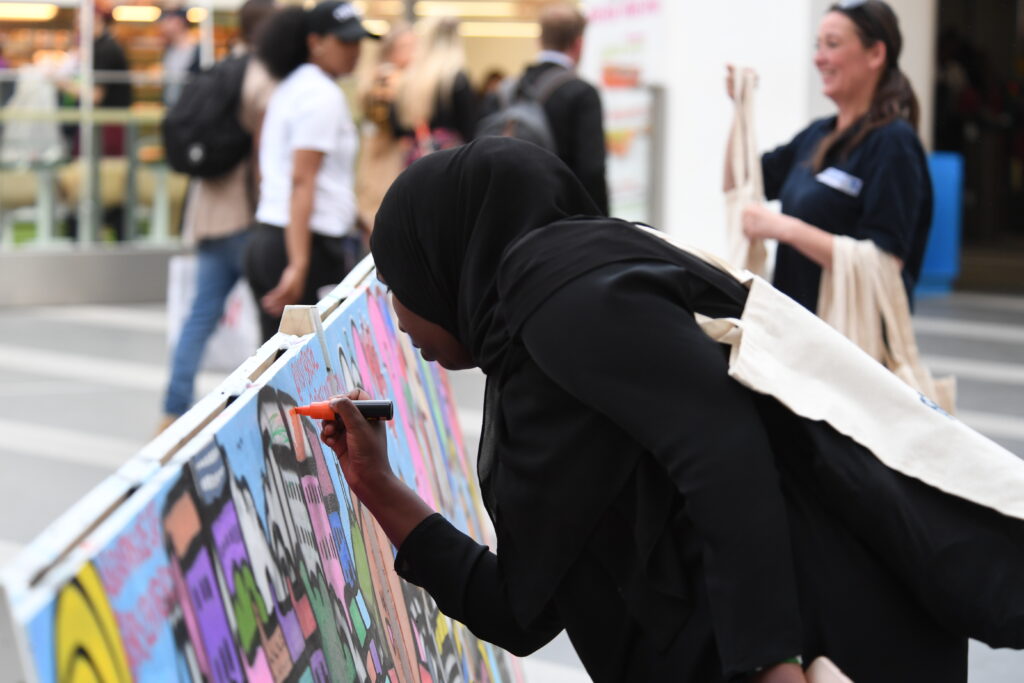
Friends of Batley Station (FOBS) have come together for their annual Great Get Together celebrations, extending the hand of friendship to rail travellers and celebrating the achievements of the late MP Jo Cox.
Held every year between 24-26 June, the Great Get Together celebrates the practical ways our communities connect us. Events are held throughout the UK, aiming to bridge divides and celebrate what unites us – and this year’s theme was “Welcome”.
On Friday 24 June, FOBS provided free tea, coffee, fruit and muffins (all funded by local donations) to passengers on their morning commute through Batley Station. The group of volunteers wanted to brighten up the journey of local residents and commuters and remind everyone that when we bring different people together – in the wonderful words of Jo – “we have more in common than that which divides us”.
FOBS were joined on the day by a local mental health organisation, who provided tables and chairs at the front of the station so people had the opportunity to sit down and talk with the team of mental health professionals.
The team were also joined by members of the Huddersfield Town Foundation, who will be working with FOBS and Northern Rail to get young people from across Kirklees volunteering in their local community.
Sam Valentine, Children in Care Programme Manager at Huddersfield Town Foundation, said: “It was a fantastic morning shared with the Friends of Batley Station. Thank you for inviting us to join the Great Get Together and see the evolving, community-centric transformation of the station. We feel very excited about the future prospects of teaming up.”
Richard Isaac, Regional Community and Sustainability Manager at Northern Railway, said: “I would like to say a huge thank you to all the Friends of Batley Station who work tirelessly on the station and in their community. If a template was needed for what is so fantastic about community rail, Batley would be that template.
“For me as the Community Manager, it is a really humbling experience to see what FOBS do for their community and, more importantly, how the group is valued by their community.”

